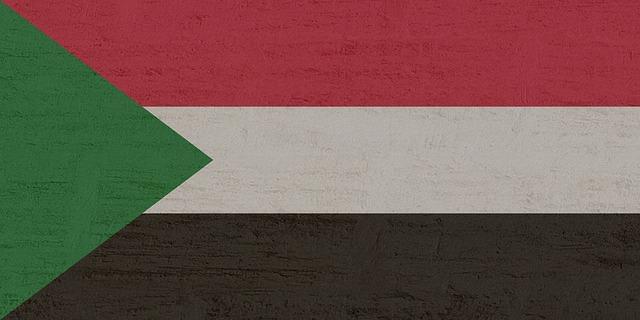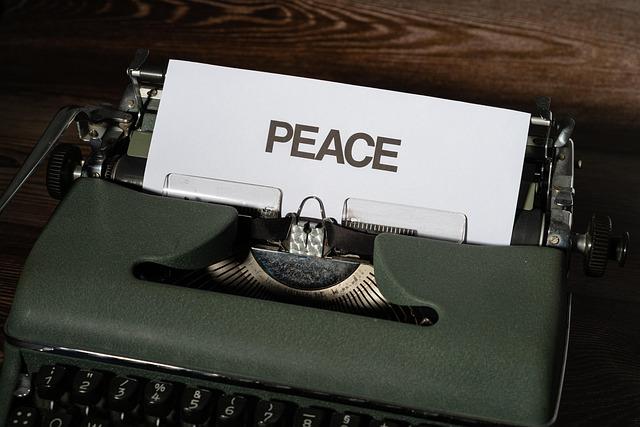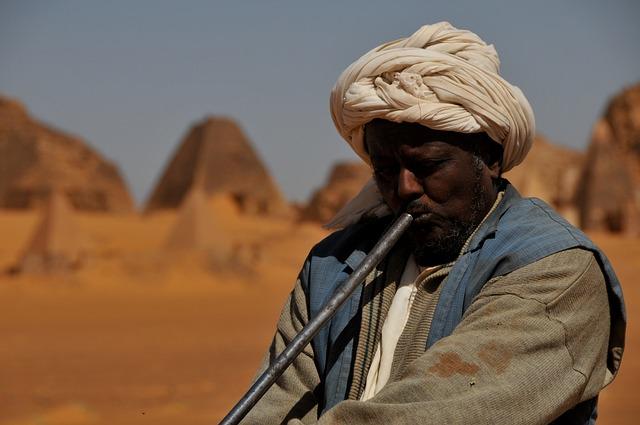Introduction:
As South Sudan navigates its tumultuous journey towards lasting peace, recent reports indicate a troubling escalation in government crackdowns that threaten to undermine the fragile stability achieved since the signing of the peace agreement in 2018. Despite international efforts to foster dialog and reconciliation, security forces have intensified thier repression of dissent, stifling voices advocating for democracy and human rights. This crackdown not only raises concerns among activists and civil society but also poses significant risks to the ongoing peace process, casting a shadow over the nation’s aspirations for a harmonious future. This article examines the current state of affairs in South Sudan, exploring the implications of the government’s actions on the peace process and the broader socio-political landscape of the young nation.
South Sudan Government’s Ongoing Crackdown Threatens Stability of Peace Agreements
The South Sudanese government’s intensified crackdown on dissent poses significant obstacles to the fragile peace agreements established in 2018.Reports indicate a systematic approach to suppressing opposition voices through arbitrary arrests, unlawful detentions, and violent confrontations. Activists and civil society members face increasing persecution, illustrating a stark disparity between the promised path of reconciliation and the reality of ongoing repression.Key elements contributing to this precarious situation include:
- Arbitrary Arrests: Numerous reports highlight the detention of political opponents and critics without due process.
- Media Suppression: Journalists face threats and censorship, stifling autonomous reporting on governmental actions.
- Violent Crackdowns: Security forces have increasingly resorted to violence in protests, undermining the public’s right to peaceful assembly.
This climate of fear not only disrupts the socio-political fabric of the nation but also raises alarm among international observers who advocate for peace and stability. Key stakeholders are calling for urgent dialogue and accountability to prevent a slide back into conflict. The implications of this crackdown are dire, as the ongoing instability could lead to:
| Potential Impacts | Consequences |
|---|---|
| Renewed Violence | Resurgence of armed conflict among rival factions. |
| Deterioration of Human Rights | Increased suffering among civilians and displacement. |
| International Isolation | Strained relations with foreign governments and NGOs. |

Human Rights Violations Escalate Amidst Political Tensions in South Sudan
The ongoing political strife in South Sudan has given rise to a disturbing upsurge in human rights violations,a trend that threatens to derail efforts toward peace and stability in the region. Reports from various humanitarian organizations indicate that government forces are increasingly targeting civilians in what appears to be an attempt to suppress dissent and control local populations. Some of the most pressing violations include:
- Extrajudicial killings: Civilians accused of opposing the government face deadly consequences.
- Torture and ill-treatment: Detainees are subjected to inhumane conditions in prisons.
- Displacement: Thousands are forced to flee their homes due to violent government reprisals.
- Suppression of free speech: Journalists and activists are arrested for voicing criticism.
This crackdown has sparked outrage among international observers and has raised alarms about the deteriorating human rights landscape in South Sudan. With increasing reports of violence, it is indeed crucial for the global community to respond decisively. the potential for a humanitarian disaster looms large, as health and educational services are disrupted and access to essential resources becomes increasingly limited.below is a table summarizing current conditions affecting the populace:
| Indicator | Current Status | Change Over Last Year |
|---|---|---|
| Internally displaced People | 2.2 million | Increased by 20% |
| Access to Education | Less than 50% | Declined by 15% |
| Healthcare Facilities Operating | 30% | Declined by 10% |

International Community’s Role in supporting South Sudan’s Fragile Peace Process
The international community’s involvement is crucial in stabilizing South Sudan, which is currently at a crossroads due to ongoing tensions and governmental crackdowns. Organizations such as the United Nations and the African Union have a vital role in advocating for peace, offering mediation, and monitoring human rights violations. Their efforts can be categorized into several key initiatives:
- Diplomatic Engagement: Coordinated dialogues between conflicting parties to foster understanding and build trust.
- Financial Support: Providing humanitarian aid and funding for infrastructure development to address the root causes of instability.
- Monitoring and Reporting: Ensuring accountability through regular assessments of the peace process and reporting on human rights abuses.
In addition, global stakeholders, including regional powers and non-governmental organizations, must prioritize their support by focusing on grassroots initiatives. These local efforts are essential for building a durable peace, as they empower communities to be active participants in their own governance. The importance of such initiatives can be illustrated as follows:
| Key initiatives | Expected Outcomes |
|---|---|
| Community Dialogue Programs | Enhanced local conflict resolution skills |
| Education and Awareness Campaigns | Increased public understanding of peace agreements |
| Support for Local Leaders | Strengthened legitimacy and trust within communities |

Recommendations for a Sustainable Framework to Enhance Peace and Security in South Sudan
To cultivate a lasting peace in South Sudan, a multi-faceted approach is essential. Firstly, it is imperative to establish inclusive dialogue platforms that engage all factions of society, including marginalized groups, women’s organizations, and youth representatives.Such platforms can serve as spaces for discussing grievances and envisioning a shared future.Additionally, the following measures should be prioritized:
- Strengthening Local Governance: Empower local communities through decentralized governance structures that promote accountability and citizen participation.
- addressing Economic Inequality: Implement socioeconomic development programs aimed at reducing disparities and creating job opportunities, particularly for youth.
- Promoting Transitional Justice: Establish mechanisms that facilitate truth-telling, accountability for past atrocities, and reparations for victims to foster reconciliation.
Moreover, it is indeed crucial to enhance regional cooperation and support from international entities. A collaborative approach can definately help harness resources and expertise, creating a robust network that bolsters peacekeeping efforts. Consideration should also be given to the following strategic actions:
| Strategic Actions | Potential Impact |
|---|---|
| Regional Peacekeeping Missions | Provide stability and protection, enabling safe conditions for dialogue and rebuilding efforts. |
| International Aid Coordination | Ensure aid effectiveness and prevent duplication of efforts among humanitarian organizations. |
| Support for Civil Society Initiatives | Enhance community resilience and promote grassroots activism for peace. |

Voices from the Ground: Civil Society Perspectives on the Current Crisis in South Sudan
The landscape of civil society in South Sudan is increasingly fraught with tension as the government’s ongoing crackdown on dissent threatens the fragile peace process. Activists and organizations are reporting intensified repression, with arbitrary detentions and violence against protesters becoming more common. Reports from local NGOs highlight a systematic attempt to silence critical voices, leaving many fear for their safety.Key issues identified by these groups include:
- Suppression of Freedom of Expression: Journalists and civil society leaders have faced intimidation and harassment.
- Impediments to Peace Dialogue: The lack of a safe environment for discussions undermines efforts for reconciliation.
- Isolation of Human Rights Defenders: Many activists work in exile or under constant threat.
Despite these hurdles, civil society remains resilient, showcasing a commitment to advocating for human rights and sustainable peace in the region. Initiatives are underway, led by grassroots organizations to mobilize communities and foster dialogue, even amidst government opposition. A recent survey conducted by local groups uncovered insights about public sentiment regarding the peace process:
| Aspect | Support (%) |
|---|---|
| Peace Accords Awareness | 78% |
| Trust in Government | 35% |
| Desire for democratic Participation | 82% |
Concluding Remarks
the fragile peace process in South Sudan faces significant threats as the government intensifies its crackdown on dissent and civil society. The ongoing violence and suppression of freedoms not only undermine the trust necessary for lasting reconciliation but also jeopardize the efforts of international and regional stakeholders invested in peace in the region. As the situation evolves, it is indeed imperative for the global community to monitor these developments closely and advocate for dialogue and reforms that uphold human rights.Without considerable commitment to addressing the root causes of conflict, the risk of renewed turmoil remains high, posing a grave challenge to the aspirations of the South Sudanese people for stability and prosperity. The path forward requires unwavering perseverance and a collective push for accountability and inclusive governance if peace is to become a reality in this war-torn nation.







